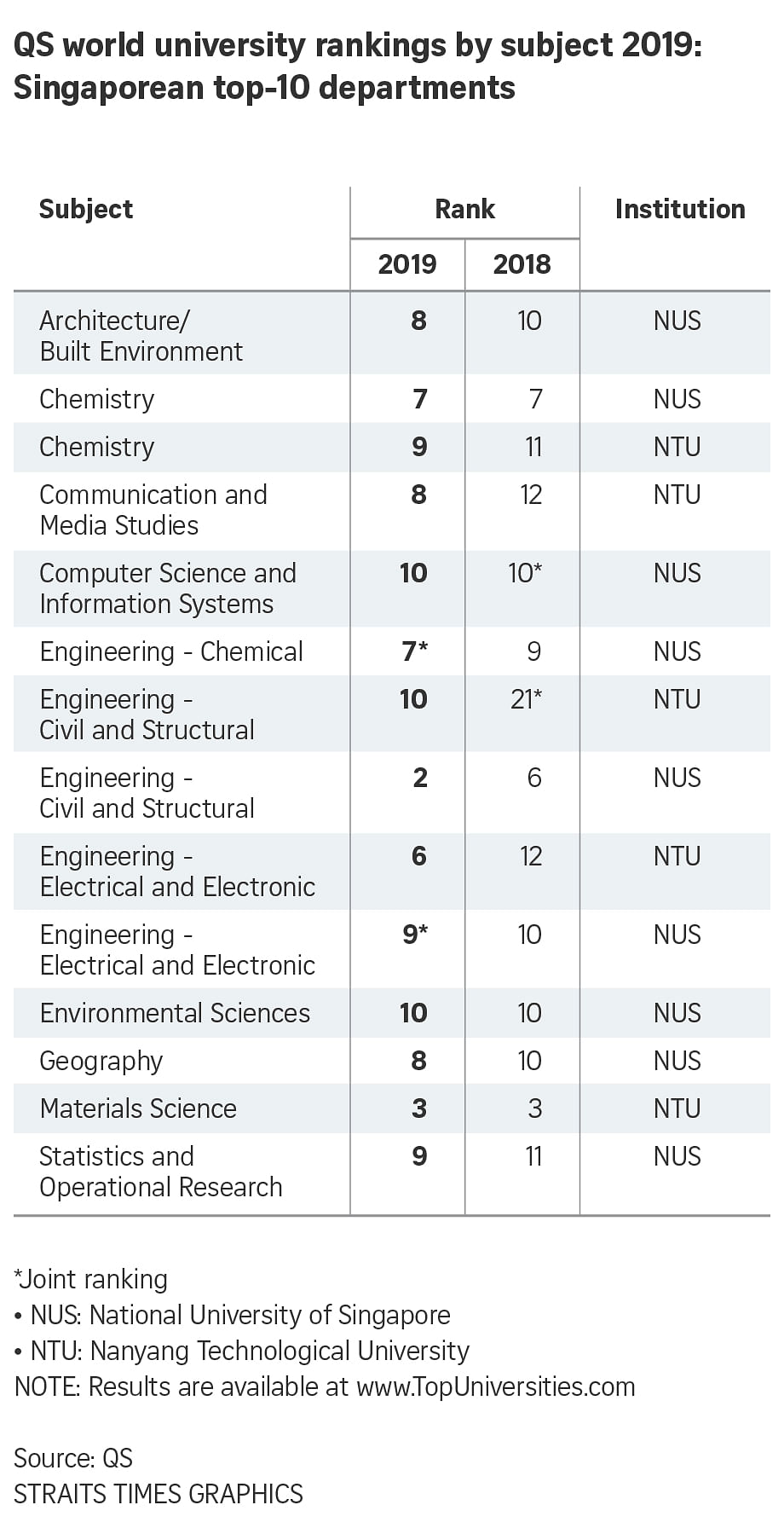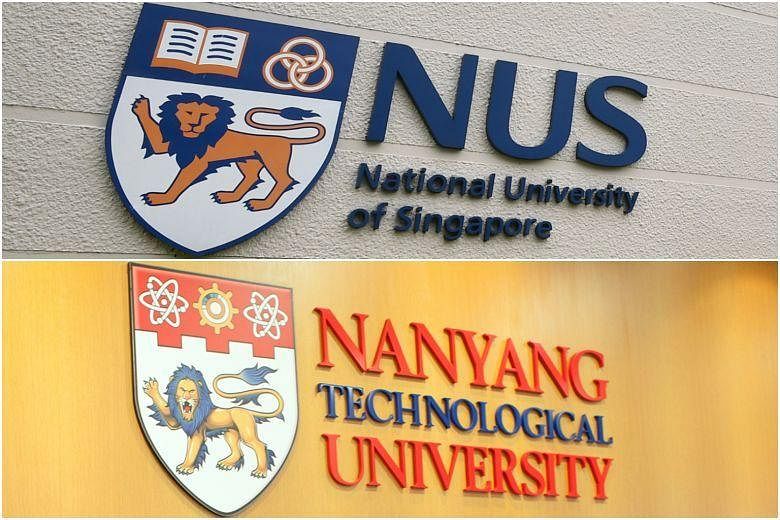SINGAPORE - The Republic's two leading universities - the National University of Singapore and Nanyang Technological University - have done well in a league table comparing universities around the world by subjects.
The latest edition of the Quacquarelli Symonds (QS) World University Rankings by Subject released on Wednesday (Feb 27) showed that in total, 14 Singaporean subject offerings ranked in the global top 10. This was more than the combined totals of China (four), Hong Kong (three), and Japan (three).
Of Singapore's 14 top-10 performances, nine were achieved by NUS, while five were achieved by NTU.
Singapore Management University broke into the top 50 for the study of business and management for the first time since 2015. In doing so, it reached its highest ever rank in this subject table - No. 41.
QS, a London-based higher education analyst firm, stressed that Singapore's universities continue to improve, with 41 of 76 ranked university departments improving their positions year on year.
It said these results come amid a widespread Asian malaise at the very top, with China, South Korea, Hong Kong and Japan all regressing.
The data is used to evaluate more than 1,200 universities across 78 countries, providing students, policymakers, academic administrators, faculty and employers with unique insight into institutional performance. The methodology comprises four key indicators:
* Academic reputation: how much esteem a particular university is held by the global academic community.
* Employer reputation: how highly employers worldwide regard a particular institution's graduates.
* Citations per paper: how impactful, on average, a faculty's research is.
* H-Index: how productive, and impactful, the average scholar at a given faculty is.
The highest rank of any Singaporean university was achieved by NUS. It rose from No. 6 to No. 2 in civil and structural engineering, having overtaken the University of Cambridge and the University of California at Berkeley.
Nanyang Technological University remained the world's third best university for the study of materials science.
Harvard University remained the world's leading university, ranking as the world's best institution for the study of 12 subjects. Its closest competitor was still the Massachusetts Institute of Technology, which was the world leader in 11 subjects.

However, the United States higher education system continued to decline relative to competitors, with six fewer No. 1 ranks than last year.
Mr Ben Sowter, director of research at QS, said: "Singapore has long been Asia's most successful higher education system in our rankings, but there is some evidence that its ascendancy may be beginning to increase further. With China, Hong Kong, South Korea and Japan all seeing their number of top-10 and top-20 places increase, Singapore is the only major Asian higher education system to record consistent improvements.
"This is driven by the increasing desirability of Singaporean graduates, with the average score achieved by its universities for our employer reputation indicator rising this year."
Mr Sowter added that though QS stresses the importance of a nation cultivating a successful system - because the best higher education sectors are those that serve an entire population - Singapore's trajectory could see it take a global No. 1 rank in its subject tables in future years. This could happen as the Republic's universities have come close to entering the global top-10 in the overall QS World University Rankings.
"These would be significant milestones for a group of universities that remain as ambitious as they are competitive," he said.


